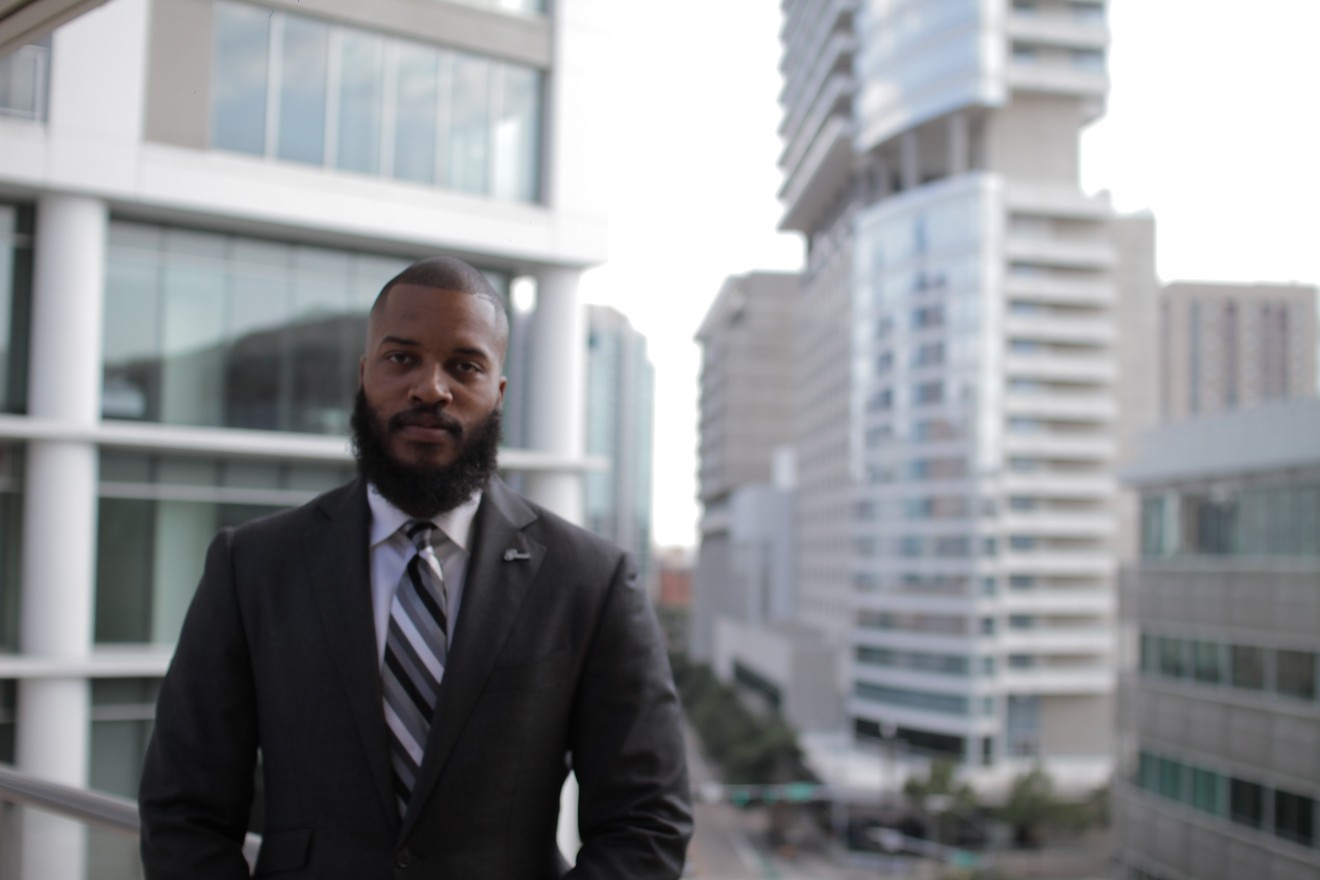
Realtor Dr. Randy Bell explains why millennials, who can't commit to watching a short online video past the first ad interruption, are afraid of 30-year mortgages.
Ken Smith Jr.
From side-hustling to climbing the corporate ladder, millennial earnings are on the rise. Despite their money no longer being funny or cute, many young people are still holding on to one thing — renting. And Dallas isn’t making things easier in terms of homebuying. According to RealPage, a real estate property management software company based in Richardson, almost 25,000 new North Texas apartments have opened up in the last 12 months. Apartment demand in the area has reached a high that hasn’t been seen in more than 20 years.
It seems like every other week a new high-rise is going up somewhere in Dallas' downtown or Uptown, or in Deep Ellum. And surrounding DFW suburbs are drinking the juice, too. But financially, does it make sense? If money is not the problem, why are millennials steadily opting out of homebuying? Dr. Randy Bell, a Dallas real estate agent with Dallas Realty Resources, spoke with the Observer about some of the many issues millennials face when it comes to buying a home.
Millennials are getting married at lower rates than previous generations, according to census data, partly because of lower wages and higher debt loads as they entered the job market during the great recession. Perhaps it's not surprising then that the generation born between 1981 and 1986 are slow to enter the housing market. According to Zillow, the average first-time homebuyer is 36 years old.
“Many think a home purchase is something that locks them in for 30 years,” Bell explains. “However, the average amount of time people spend in a home is about five to seven years. A lot of millennials are staying in the same apartment for three to five years. That same money could have been spent on a home. For example, if you’re spending $1,200 on rent, in five years you’ve spent over $60,000 with no equity. Theoretically, the average mortgage for a first-time homebuyer is anywhere between $1,400 and $1,900, which is what many millennials are paying for rent.”
However, it’s hard to deny the two major holds that renting has over those looking to be in the right place at the right time: amenities and location."The average mortgage for a first-time homebuyer is anywhere between $1,400 and $1,900, which is what many millennials are paying for rent.” — Dr. Randy Bell
tweet this
“Millennials want to be in close proximity to all the fun,” Bell says. “Also, a lot of these apartments have state-of-the-art amenities and are low maintenance.”
All of which can be tempting to someone looking to simply pay rent at the beginning of each month and carry on. Another reason millennials are slow to get on the buying train is a lack of homebuying knowledge.
“There are many misconceptions about the requirements and qualifications needed to get into a home,” Bell says. “A lot of times people think they need perfect credit, and they don’t. You do need good credit, but it doesn’t have to be perfect. Money down is another big one. People think you need 25 percent of the cost of the home for a down payment. Millennials also don’t read as much as they should, therefore it’s hard for them to get the information necessary to make an informed decision."
An informed decision involves identifying your budget and desired location and learning what kind of programs can potentially offer a buyer some financial relief. Take 34-year-old Brandi Barnett, for example, who bought her home when she was 28.
“I purchased my home because I was able to take advantage of a program for teachers that allowed me to get into the home for less than it would cost to get into an apartment,” Barnett says. “The program covered my down payment and all closing costs. The market was good for buyers at the time, so it was a deal I couldn't refuse. The house has a beautiful garden, and as soon as I saw it, I knew I had to have it.”
But what if the issue isn’t making a decision, but a lack of enthusiasm? Or dare we say, procrastination?
“Something as simple as going to a loan officer will help set the proper expectations and/or lay out the steps necessary to make your dreams of being a homeowner a reality," Bell says. "Some people just wave it off and don’t even try. A lot of times people are closer than they think.”
Above all, the biggest thing for millennials — or anyone — looking to buy a home is having a plan in place.
“Figure out where you want to be and map it out,” Bell says. “When I moved here during the first year of renting, I decided I was going to purchase a home. I started reading and researching to understand the homebuying process. I ended up purchasing a home before it was time to renew my lease.”
The moral of the story is that there’s no shame in renting. But if you’re interested in buying a home, be optimistic. And most important, be active.
“If you want to stay in an apartment, that’s fine,” Bell says. “But if you’re thinking about purchasing a home, make moves that’ll lead you towards that. Don’t just talk about it, be about it.”











